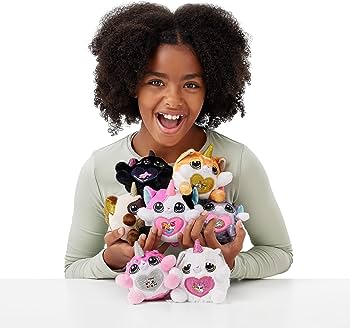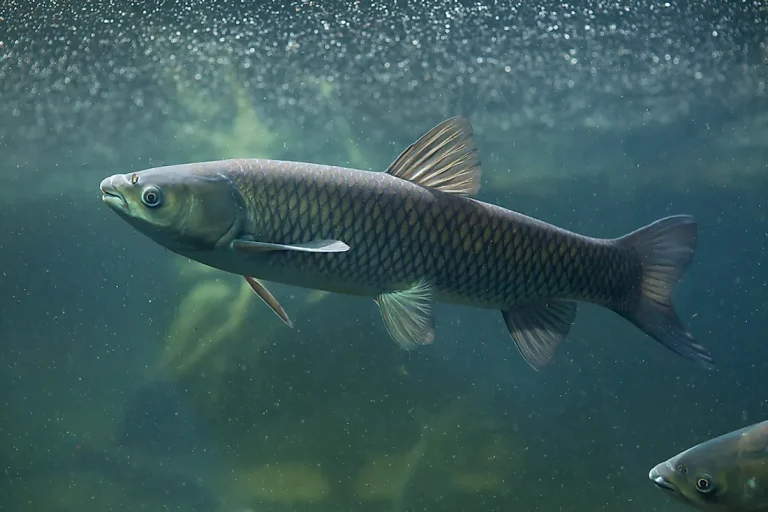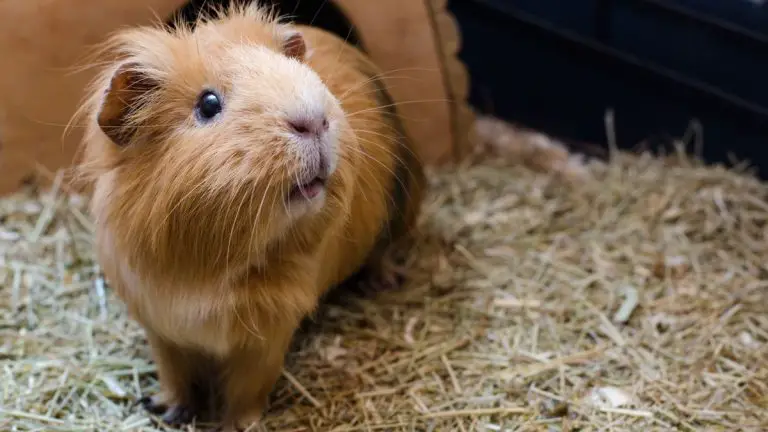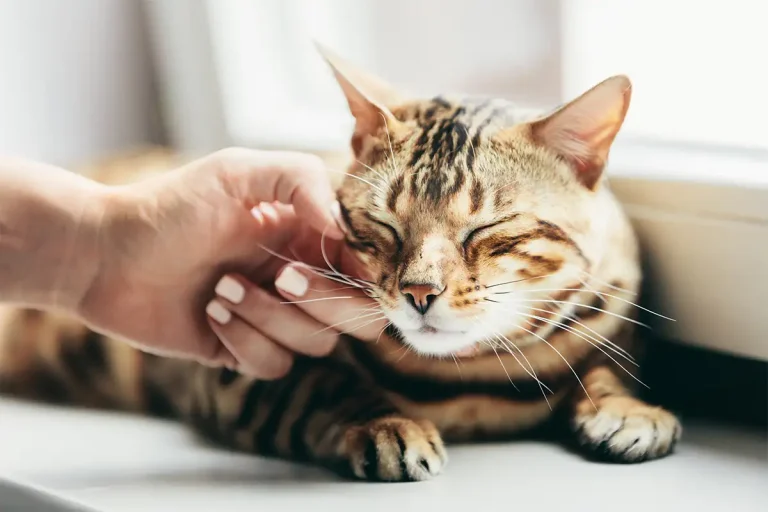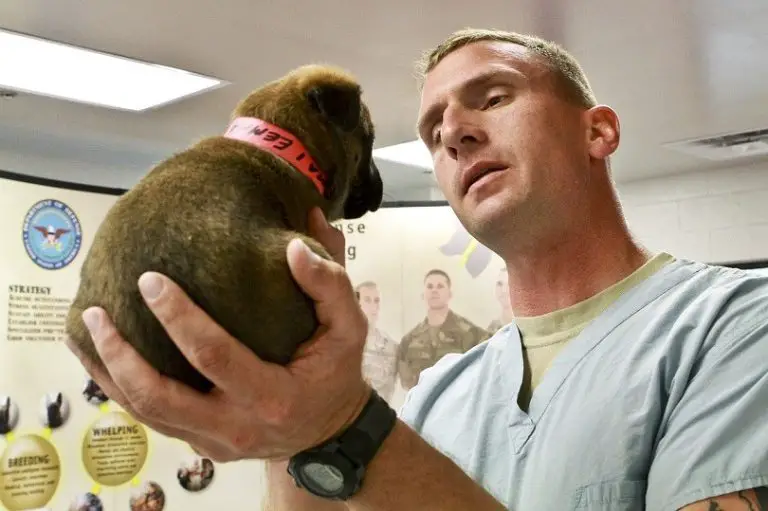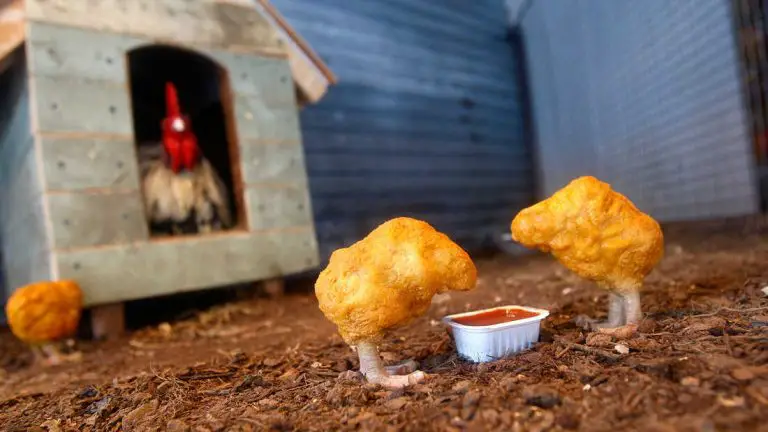Why Do Chinchillas Throw Poop
Chinchillas throw poop as a defensive behavior against potential threats or to mark their territory. Chinchillas, adorable small rodents originating from the Andes Mountains, are known for their playful and curious nature.
However, there is one peculiar behavior that often leaves chinchilla owners baffled – the act of throwing poop. While it may seem disgusting or even nonsensical, there is a purpose behind this behavior. Chinchillas will throw their droppings as a means of self-defense against perceived threats or to mark their territory.
We will explore the reasons why chinchillas engage in this peculiar behavior and shed light on the truth behind their poop-throwing tendencies. So, if you’re curious to uncover the secrets behind this seemingly unappealing behavior, keep reading!
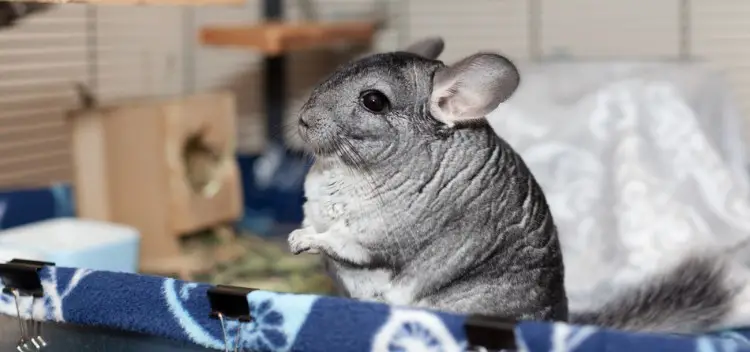
Understanding Chinchilla Behavior
Chinchillas may throw poop as a form of communication or to mark their territory. Understanding this behavior can help caregivers create a clean and comfortable environment for their furry friends.
Chinchilla Behavior 101
Chinchillas are fascinating creatures with unique behavior patterns that can sometimes leave us scratching our heads. Understanding their behavior is key to providing them with a happy and healthy environment. In this section, we will explore some of the common behavior traits exhibited by chinchillas.
Exploring Natural Behavior Patterns
Chinchillas have inherited a range of natural behavior patterns that have helped them survive in the wild. Here are some insights into their natural behavior:
- Nocturnal creatures: Chinchillas are primarily active during the nighttime when they feel most comfortable and secure.
- Burrowing instinct: In the wild, chinchillas live in burrows. This instinctive behavior often leads them to dig and burrow in their cages as well.
- Chewing behavior: Chinchillas have continuously growing teeth, so they need to chew on things to keep them at a healthy length. Their incessant chewing is entirely normal.
Social Interactions And Hierarchy
Chinchillas are social animals that exhibit distinct social interactions and establish hierarchies within their groups. Here are some key points to consider:
- Group dynamics: In the wild, chinchillas live in social groups called herds. These groups help to provide safety and support.
- Hierarchy: Chinchillas establish a hierarchy within their groups, with dominant and submissive individuals. This hierarchy is usually established through subtle social cues and interactions.
- Scent communication: Chinchillas use scent marking to communicate with each other. They have scent glands on their cheeks and flanks, which they use to mark their territory or claim dominance.
Curiosity And Playfulness
Chinchillas are known for their curious and playful nature. Let’s take a closer look at these endearing traits:
- Exploratory nature: Chinchillas are naturally curious creatures and love to explore their surroundings. Providing them with enriching toys and activities will keep them mentally stimulated.
- Play behavior: Chinchillas engage in play behavior, which serves as both entertainment and exercise. Their playful antics often include hopping, racing, and even throwing objects like poop.
- Communication through play: Play behavior also serves as a means of social interaction and communication among chinchillas. It helps to strengthen bonds and establish hierarchies within the group.
Understanding chinchilla behavior is crucial for creating a comfortable and stimulating environment for these adorable little pets. By recognizing their natural instincts, social interactions, and playful nature, we can ensure that they lead happy and fulfilling lives.
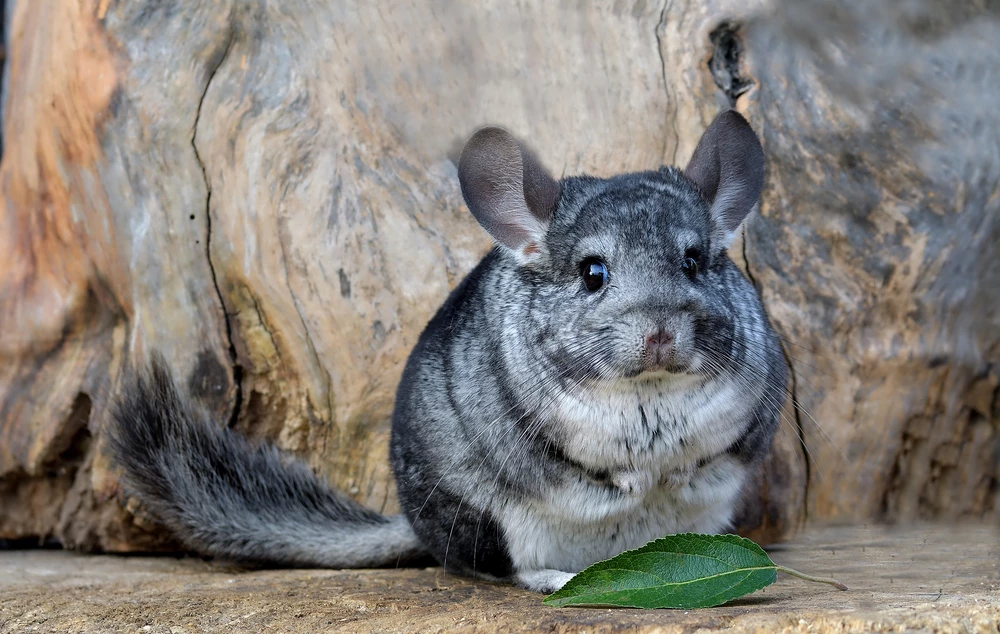
Chinchilla Diet And Digestion
Chinchillas throw poop as a natural behavior to mark their territory and communicate with other chinchillas. This behavior is rooted in their instinctive need for cleanliness and dominance within their environment. Understanding this aspect of their diet and digestion can help chinchilla owners provide the best care for their furry friends.
Chinchillas are known for their unique behavior of throwing poop, which may leave you wondering why they do it. In order to understand this curious habit, it’s essential to delve into the world of the chinchilla diet and digestion. Let’s explore this fascinating topic further!
A Nutritional Guide For Chinchillas:
- Chinchillas have specific dietary requirements to maintain their overall health and well-being.
- A balanced chinchilla diet consists primarily of hay, supplemented with a small portion of pellets and occasional treats.
- Hay is crucial for providing chinchillas with essential fiber, which aids in digestion and prevents gastrointestinal problems.
- Avoid high-fat foods or treats that can lead to obesity and digestive issues.
The Importance Of A Balanced Diet:
- Providing a balanced diet is key to promoting optimal digestive health in chinchillas.
- A well-balanced diet supports the development of a strong immune system and helps prevent nutrient deficiencies.
- Inadequate nutrition can lead to health problems such as malocclusion, which is a condition where a chinchilla’s teeth do not align properly.
Digestive System Overview:
- Chinchillas have a unique digestive system designed for processing fibrous foods.
- Their gastrointestinal tract is relatively simple and lacks a cecum, a specialized organ found in other herbivorous animals.
- This means chinchillas rely on a highly efficient process of fermentation in the intestines to break down food and extract nutrients.
Dietary Factors Affecting Digestion:
- Fiber: High-fiber diets are crucial for chinchillas as it helps maintain healthy digestion.
- Water: Adequate water intake is essential for chinchillas to prevent dehydration and facilitate proper digestion.
- Overfeeding: Providing excessive amounts of food can overload the digestive system and lead to health issues.
- Sudden Dietary Changes: Introducing new foods abruptly can disrupt chinchilla digestion. Gradual transitions are recommended.
- Treats: While treats can be given in moderation, it’s important to choose ones that are safe and do not disrupt the chinchilla’s diet.
Understanding the chinchilla diet and digestion sheds light on why chinchillas have the peculiar habit of throwing poop. By maintaining a nutritious diet and respecting their unique digestive system, you can ensure the well-being and happiness of these adorable furry creatures.
So, now you know the truth behind this enigmatic behavior!
The Mysterious Act Of Poop Throwing
Chinchillas engage in the mysterious act of poop throwing as a defense mechanism. By throwing their feces, they mark their territory, communicate with other chinchillas, and scare away potential threats. Understanding this behavior reveals the truth behind this unusual habit.
Why Do Chinchillas Throw Poop?
Chinchillas are adorable little creatures known for their soft fur and lively personalities. However, one behavior that often puzzles chinchilla owners is their tendency to throw poop. Yes, you read that right! Chinchillas have a habit of flinging their feces, and it’s a behavior that has fascinated experts for years.
We’ll delve into the reasons behind this mysterious act and uncover the surprising truth!
Unveiling The Surprising Truth!
When it comes to poop throwing, chinchillas aren’t alone. Other animals like monkeys and birds have also been observed engaging in this peculiar behavior. While it may seem gross to us, there are actually evolutionary reasons behind this activity. Let’s explore them further:
Evolutionary Reasons Behind Poop Throwing:
- Instinctual Defense Mechanism: Chinchillas are prey animals in the wild, and throwing poop can serve as a defense strategy. By flinging their feces, they create a barrier of smell that deters potential predators. It’s a way for them to say, “Stay away!”
- Territorial Marking: Chinchillas have scent glands in their anal region, and the act of throwing poop helps them mark their territory. By spreading their scent, they communicate with other chinchillas, establishing boundaries and asserting dominance.
- Stress and Aggression Release: Just like humans might squeeze a stress ball to alleviate tension, chinchillas have their own way of venting frustration and anxiety. Poop throwing can be a means for them to release pent-up emotions and establish their dominance within a group.
- Olfactory Communication: Chinchillas have a keen sense of smell, and poop carries a wealth of information in the form of pheromones. By flinging their feces, chinchillas can communicate with other members of their species, conveying messages such as mating availability or danger signals.
Examining The Role Of Instincts And Survival:
Beyond the evolutionary reasons, instinct also plays a significant role in poop throwing behavior. Chinchillas, like many animals, have an innate drive to engage in certain behaviors that aid their survival. Here’s how instincts come into play:
- Mimicking Natural Behaviors: In the wild, chinchillas might have encountered situations where throwing poop proved to be advantageous, such as warding off predators or marking their territory. Even in captivity, their instincts can persist, leading them to repeat these behaviors.
- Preparing for the Worst: Chinchillas are cautious and always on alert, ready to face potential threats. By throwing poop, they create a diversion and buy themselves time to escape from danger. It’s a survival mechanism rooted deep within their instincts.
The act of chinchillas throwing poop may seem strange to us, but it has fascinating evolutionary and instinctual reasons behind it. From territorial marking to self-defense, these behaviors offer valuable insights into how chinchillas navigate their world. So, the next time you witness your chinchilla engaging in this behavior, remember that they are simply using their natural instincts to communicate and survive.
Decoding Chinchilla Communication
Discover the intriguing world of chinchilla communication as we unravel the mystery behind why these adorable creatures throw poop. Unveiling the truth about this peculiar behavior, find out the reasons and signals behind their actions. Gain insights into the fascinating ways chinchillas communicate with each other.
Chinchillas are fascinating creatures known for their unique behavior and communication methods. In order to understand why chinchillas throw poop, it is important to decipher their silent language. By interpreting their vocalizations, body language, scent marking, and territoriality, we can gain insights into their social interactions and communication patterns.
The Silent Language Of Chinchillas
Chinchillas may not speak in human words, but they have their own forms of communication that are just as effective. Here are some key aspects of their silent language:
- Vocalizations: Chinchillas use a variety of vocalizations to express themselves, ranging from chirping and barking to purring and squeaking. Each sound has a different meaning, conveying emotions such as happiness, fear, or anxiety.
- Body Language: Chinchillas’ body language communicates a wealth of information. Pay attention to their ears, tail, and posture. For example, flattened ears indicate fear or aggression, while an upright tail signifies curiosity or friendliness.
Interpreting Vocalizations And Body Language
Understanding the vocalizations and body language of chinchillas can help us decode their communication. Here are some key points to consider:
- Chirping: Chinchillas chirp when they are content and relaxed. It is a sign of happiness.
- Barking: Chinchillas bark as a warning or when they feel threatened. It is their way of alerting others to potential danger.
- Purring: Chinchillas purr when they’re feeling content and relaxed. It’s a sign that they are comfortable in their environment.
- Squeaking: Chinchillas squeak to communicate distress or pain. It’s important to pay attention to this vocalization and address any potential issues.
- Ears: When a chinchilla’s ears are perked up, it indicates attentiveness and curiosity. But if the ears are flattened, it suggests fear or aggression.
- Tail: An upright tail shows that a chinchilla is interested and engaged. A flicking or wagging tail can signal excitement or playfulness.
Role Of Scent Marking And Territoriality
Scent plays a crucial role in chinchilla communication. Here’s how scent marking and territoriality contribute to their silent language:
- Scent Marking: Chinchillas use scent marking to establish their territory and communicate with other chinchillas. They have scent glands on their belly and chin, and they rub these areas against objects, leaving behind their unique scent.
- Territoriality: Chinchillas are territorial animals, and they mark their space to deter other chinchillas from encroaching. This helps maintain a hierarchy and reduce the likelihood of conflicts.
Significance Of Poop Throwing In Communication
While it may seem surprising, poop throwing is also a form of communication for chinchillas. Here’s why it holds significance:
- Asserting Dominance: Chinchillas may throw poop as a way to establish dominance within a group. It can serve as a territorial marker and show others who’s in charge.
- Expressing Discomfort: Poop throwing can also be a sign of discomfort or stress. Chinchillas might resort to this behavior when they feel threatened or anxious.
- Warning or Distraction: Chinchillas may hurl poop as a strategy to distract potential predators or draw attention away from themselves. It can give them a better chance to escape unharmed.
Understanding the silent language of chinchillas, including vocalizations, body language, scent marking, and even poop throwing, allows us to glimpse into their intricate communication system. By respecting and interpreting their unique ways of expression, we can better understand and care for these fascinating creatures.
The Health Impact Of Poop Throwing
Chinchillas throwing poop may seem puzzling, but it actually serves as a form of marking territory and self-defense. This behavior can cause health concerns, as the feces may contain harmful bacteria and parasites that can lead to infections if ingested or inhaled.
Why Do Chinchillas Throw Poop? The Truth Revealed!
Curiosity may have brought you here, wondering why chinchillas throw their own poop. It’s not the most pleasant topic to discuss, but it’s important to understand the health implications behind this behavior. In this section, we’ll delve into the potential dangers of poop throwing, how it affects chinchilla health, and ways to address behavioral issues associated with this habit.
The Potential Dangers Of Poop Throwing:
Chinchillas are known for their unique habit of throwing poop, but why is it a concern? Here are some key points to consider:
- Hygiene and Disease Transmission: When chinchillas throw their poop, it increases the risk of spreading harmful bacteria and parasites. This behavior promotes unsanitary conditions in their enclosure, leading to a higher chance of infection and disease transmission.
- Impact on Chinchilla Health and Well-being: Poop throwing can lead to health issues for chinchillas themselves. Contact with feces can cause skin irritations, eye infections, and gastrointestinal problems. In addition, the stress caused by these issues can negatively affect their overall well-being.
Understanding Hygiene And Disease Transmission:
Maintaining proper hygiene for chinchillas is crucial to prevent the spread of diseases. Here are some important points to consider:
- Regular Cage Cleaning: A clean environment is important in reducing the risk of disease transmission. Regularly clean their cage, removing any soiled bedding or feces promptly.
- Proper Hand Hygiene: Always practice good hand hygiene before and after handling your chinchilla. This helps minimize the risk of introducing harmful bacteria from their feces into your own body.
Impact On Chinchilla Health And Well-Being:
Throwing poop may seem harmless, but it can have a significant impact on the health and well-being of chinchillas. Consider the following:
- Skin and Eye Irritation: Contact with their own feces can cause skin irritations and eye infections. Regular cleaning and monitoring for any signs of redness, swelling, or discharge is essential.
- Gastrointestinal Issues: If chinchillas accidentally ingest feces while throwing them, it can disrupt their digestive system, leading to gastrointestinal issues and potential discomfort.
Addressing Behavioral Issues And Solutions:
Dealing with poop throwing behavior in chinchillas requires attention and prompt action. Here are some strategies to address this issue:
- Environmental Enrichment: Provide your chinchilla with plenty of toys, tunnels, and chewing materials to keep them mentally stimulated. Boredom can contribute to behavioral problems, including poop throwing.
- Consistent Training and Positive Reinforcement: Train your chinchilla to use a designated litter area within their enclosure. Reward them with treats and praise when they use it correctly, encouraging proper bathroom habits.
- Consulting a Veterinarian: If the poop throwing behavior persists or is coupled with other concerning signs, consult a veterinarian experienced in small animals. They can assess your chinchilla’s overall health and provide tailored advice.
Remember, understanding the health impact of poop throwing behavior in chinchillas is vital for their well-being. By addressing behavioral issues and maintaining good hygiene practices, you can ensure a healthier and happier life for your furry friend.
Nurturing A Happy And Well-Behaved Chinchilla
Discover the truth behind why chinchillas throw poop and learn how to nurture a happy and well-behaved furry friend in this insightful article. Gain insights into their behavior and find practical tips to maintain a harmonious environment.
Promoting Positive Behavior In Chinchillas:
- Providing a consistent routine for your chinchilla’s daily activities will help promote positive behavior. This can include feeding, playtime, and exercise.
- Reinforcing good behavior with positive rewards, such as treats or praise, will encourage your chinchilla to continue those behaviors.
- Avoiding punishment or negative reinforcement is crucial, as it can lead to fear or aggression in your chinchilla.
- Regular socialization with your chinchilla, allowing them to interact with you and other family members, is essential for promoting positive behavior.
Effective Handling And Socialization Techniques:
- Always approach your chinchilla calmly and gently. Avoid sudden movements or loud noises that may startle them.
- Start by offering your chinchilla treats from your hand to build trust and establish a positive association.
- Gradually introduce gentle handling, such as stroking their fur or cradling them in your hands. Be patient and let your chinchilla dictate their comfort level.
- Regularly expose your chinchilla to different environments, sounds, and experiences to help them become more adaptable and sociable.
Encouraging Mental Stimulation And Exercise:
- Chinchillas are intelligent animals that require mental stimulation to prevent boredom and destructive behavior. Provide them with toys, puzzles, and activities that engage their natural curiosity.
- Create a dedicated play area for your chinchilla, complete with tunnels, platforms, and climbing structures. This will encourage physical exercise and keep them active and healthy.
- Rotate toys and provide new challenges regularly to keep your chinchilla mentally stimulated and prevent boredom.
- Hide treats or pellets in different areas of their enclosure to encourage natural foraging behavior.
Creating A Safe And Enriching Environment:
- Chinchillas are sensitive to their environment, so it’s important to create an enclosure that promotes their safety and well-being.
- Use a spacious cage with appropriate bedding materials, like kiln-dried pine or aspen shavings, to provide comfort and keep their habitat clean.
- Avoid placing the cage in direct sunlight or drafty areas, as chinchillas are sensitive to temperature extremes.
- Offer a variety of chew toys made from safe materials such as untreated wood or timothy hay to satisfy their natural chewing instincts and prevent dental problems.
Remember, by promoting positive behavior, using effective handling techniques, providing mental stimulation, and creating a safe environment, you can nurture a happy and well-behaved chinchilla.
Frequently Asked Questions On Why Do Chinchillas Throw Poop? The Truth Revealed!
Why Does My Chinchilla Poop On Me?
Chinchillas poop on humans because they mark their territory and feel comfortable around you.
Can Chinchillas Control Their Poop?
Yes, chinchillas can control their poop and usually do so by using a designated area.
Is Chinchilla Poop Toxic?
Chinchilla poop is not toxic. It is safe and harmless for humans and other pets.
Are Chinchillas Dirty Pets?
Chinchillas are not dirty pets; they are naturally clean animals with bathing habits similar to birds.
Conclusion
Understanding why chinchillas throw poop is not only fascinating, but it also sheds light on their natural behaviors and instincts. By examining the reasons behind this peculiar behavior, such as marking territory, self-defense, and even seeking attention, we gain a deeper appreciation for these adorable and curious creatures.
Remember, chinchillas are intelligent beings that rely on their unique ways of communicating in their environment. While it may be unpleasant to witness them throwing poop, it is important to remember that this behavior is a natural part of who they are.
As responsible chinchilla owners, it is our duty to create a suitable habitat and provide them with adequate stimulation to prevent or minimize this behavior. By doing so, we can ensure that our chinchillas live happy and healthy lives, free from the need to resort to unique methods of communication, such as throwing poop.

